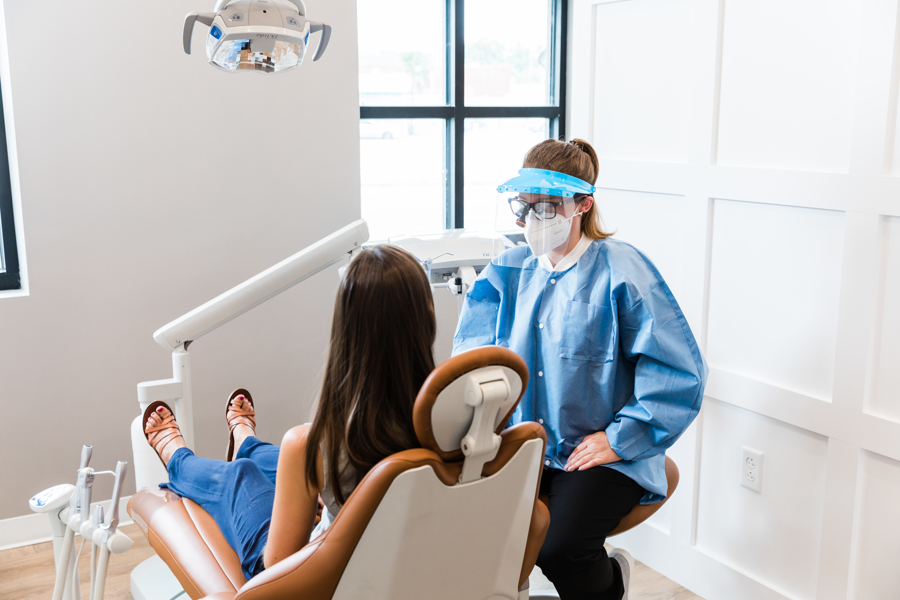Usual Concerns Regarding Oral Veneers Addressed
Oral veneers have actually come to be a significantly in-demand alternative for those looking to improve their smiles, yet lots of people remain unpredictable about various facets of their usage. As we check out these typical inquiries, it becomes important to consider not only the advantages yet also the ramifications of deciding for dental veneers in pursuit of a more positive appearance.
What Are Oral Veneers?
Dental veneers are slim, customized coverings crafted from porcelain or composite material that are created to cover the front surface area of teeth. These dental prosthetics offer both functional and visual functions, providing a remedy for different dental blemishes, including discoloration, chips, voids, and misalignment. By adhering to the teeth, veneers can dramatically boost the general look of a smile, producing a more attractive and uniform look.
Porcelain veneers are specifically preferred for their all-natural translucency and stain resistance, making them an ideal choice for individuals seeking durable results. On the other hand, composite resin veneers are typically cheaper and can be applied in a solitary visit, however they might not use the same sturdiness as porcelain choices.
The decision to choose for dental veneers often originates from a wish for visual renovation, but clients must likewise think about variables such as the durability of the product, maintenance needs, and the possible requirement for tooth reduction (Porcelain Veneers Washington DC). Inevitably, dental veneers represent a efficient and flexible option for accomplishing a radiant smile, accommodating specific cosmetic needs while promoting self-confidence and self-worth
How Are Veneers Applied?
The application procedure for veneers requires mindful planning and accuracy to ensure ideal outcomes. The treatment generally starts with a detailed assessment, where the dental practitioner examines the patient's dental wellness, talks about wanted outcomes, and identifies the suitable kind of veneers, whether porcelain or composite resin.
As soon as the treatment plan is developed, the dental expert prepares the teeth by removing a slim layer of enamel, generally about 0.5 mm to 1 mm, to accommodate the veneer. This step is vital as it makes sure a proper fit and protects against the veneers from appearing large - Dental Veneers. After preparation, impacts of the teeth are required to produce personalized veneers that match the individual's special oral structure and aesthetic choices
While the long-term veneers are being made in an oral research laboratory, momentary veneers might be put to safeguard the prepared teeth. When the irreversible veneers are all set, the dental practitioner will carefully bond them to the teeth using a solid oral adhesive.
What Are the Advantages?

Moreover, veneers are recognized for their sturdiness and resistance to tarnishing compared to all-natural teeth. Made from high-grade products such as porcelain or composite resin, they can maintain their appearance for years with proper care. This durability makes them a functional financial investment in one's oral look.
In addition to visual enhancements, veneers can additionally add to improved dental health and wellness. By covering damaged or damaged teeth, they can give added assistance and security, assisting to protect against further degeneration or degeneration. This safety aspect can minimize the demand for extra extensive dental procedures in the future.

For How Long Do They Last?
With appropriate treatment and maintenance, dental veneers can last anywhere from 10 to 15 years, making them a long-lasting option for improving one's smile. The long life of veneers mainly depends on the product used, the high quality of the first positioning, and the patient's adherence to dental health techniques.
Porcelain veneers are understood for their sturdiness and resistance to staining, usually lasting closer to the 15-year mark when taken care of properly. Composite veneers, while extra economical, might need substitute quicker, commonly within 5 to ten years due to their vulnerability to wear and staining.

Additionally, wearing a mouthguard during sports or nighttime can provide extra security. Eventually, while veneers provide a considerable aesthetic improvement, their durability is significantly affected by the commitment to appropriate oral care and normal appointments with an oral specialist.
Exist Any Type Of Threats?
Considering the transformative results of oral site web veneers, it is essential to recognize the potential threats connected with their application. While veneers can improve the look of teeth, the treatment involves the removal of a slim layer of enamel, which can enhance tooth sensitivity and susceptability to decay.
One substantial danger is the possibility of improper positioning or suitable, resulting in pain, bite imbalance, and even damages to the underlying tooth structure. Furthermore, if the veneers are not preserved properly, they can become discolored or chipped over time, demanding substitute.
People might also experience allergies to the materials made use of in the veneers, especially if they have sensitivities to certain oral composites. In addition, while veneers are long lasting, they are not undestroyable; extreme force from squeezing or grinding can lead to cracks.
It is vital for clients to speak with a qualified dental professional to examine their private risks and to comply with aftercare instructions vigilantly. By recognizing these dangers, people can make educated choices regarding their oral veneer treatment and make certain the durability and success of their enhancements.
Final Thought
In recap, dental veneers represent an important cosmetic option for boosting smiles, with considerations concerning their application, benefits, longevity, and linked dangers. Their efficiency is influenced by factors such as the choice of product, with porcelain offering premium toughness compared to composite alternatives. Proper care and upkeep are important to take full advantage of the lifespan of veneers. Eventually, informed decision-making concerning dental veneers can result in acceptable visual outcomes and enhanced dental health.
Dental veneers are slim, tailor-made coverings crafted from porcelain or composite resin that are made to cover the front surface of teeth. After preparation, impressions of the teeth are taken to create personalized veneers that go match the client's one-of-a-kind dental framework and aesthetic preferences.
While the permanent veneers are being fabricated in an oral research laboratory, temporary veneers might be put to safeguard the ready teeth. When the long-term veneers are all set, the dental expert will carefully bond them to the teeth making use of a strong dental adhesive. Eventually, educated decision-making relating to dental my explanation veneers can lead to sufficient visual end results and enhanced oral health.